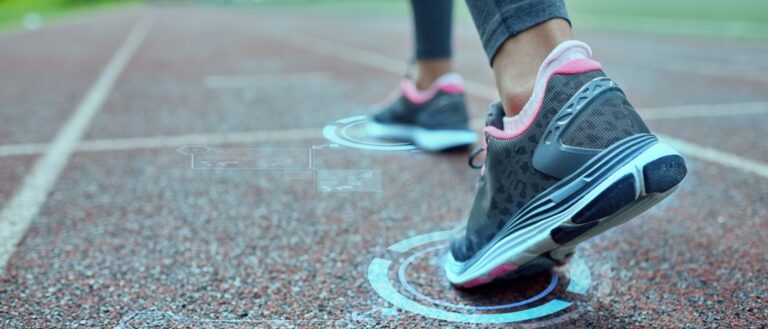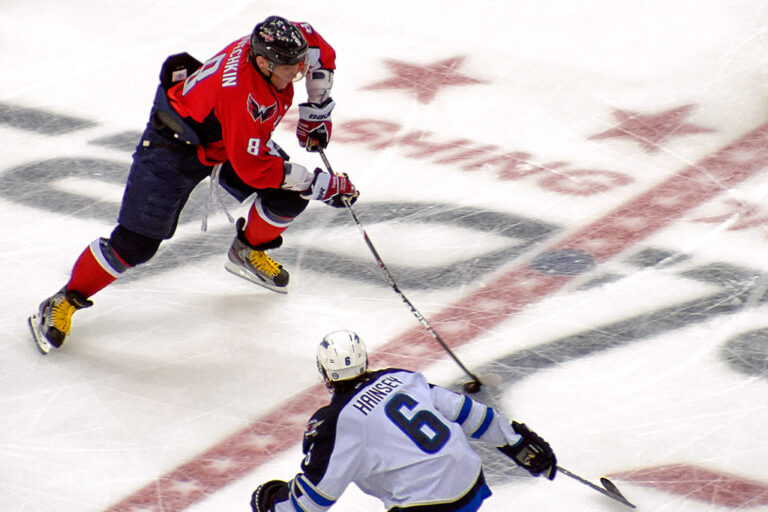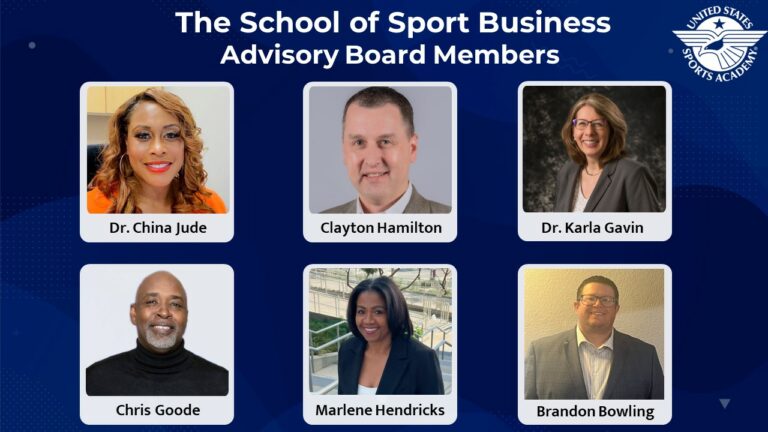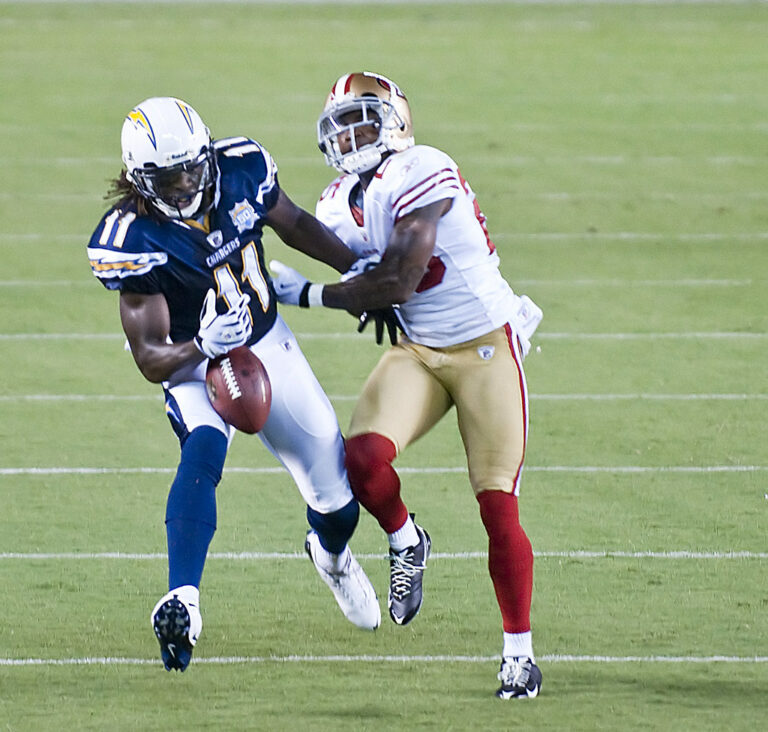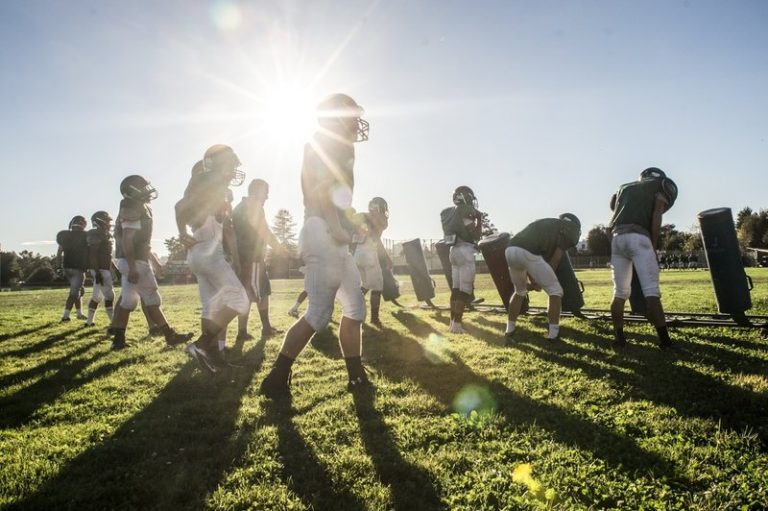Sports Information Technology: The Need for Specialized Education?
By Dr. Mark Janas |
The sports, sporting goods, and IT service industries, as well as their subsets, are expected to continue to see rapid growth rates over the next decade. This article explores this growth data, the potential needs of the marketplace, and what academic institutions need to do to address any gaps. The need for more formally trained sports information technology practitioners is proposed.
Growth on All Fronts
It goes without saying that, to optimize marketability, colleges and universities must target their curriculum toward industries with the most growth and opportunity. Consider the following information and data relative to the sports and IT industries:
- The global IT services market was valued at over $1 trillion in 2021 and is expected to reach $2.5 trillion by 2030, growing at an annual rate of 5.8%.1 The global sports market grew from $350 billion in 2021 to almost $500 billion in 2022, representing a 40% annual growth rate.2
- The global sports technology market was valued at over $12 billion in 2021 and is expected to expand at an annual rate of nearly 20% in the next 8 years. The growth is expected to be fueled by the increased use of data analytics, more Internet-enabled devices and equipment, and more social media integration.3
- The fantasy sports market size was valued at more than $18 billion in 2019 and is expected to reach almost $50 billion by 2027.4 The global esports market size was valued at $1.2 billion in 2021 and is expected to reach $5.5 billion by 2029.5
- The global wearable technology market size was valued at $52 billion in 2021 and is expected to grow at an annual rate of 15% through 2030. The increasing adoption of smart wearable devices for fitness tracking, as well as the growing use of these devices for medical purposes, is driving the growth.6
- The global sports equipment market size was valued at more than $330 billion in 2021 and is expected to grow at an annual rate of 6.4% through 2030, despite challenges presented by the global pandemic. New technologies driven by consumer demand and increased awareness about the benefits of exercise for health and fitness are the primary growth drivers.7
These industries and their subsets have several important things in common. They’re growing rapidly. Their growth is being driven by technology and innovation, and information technology is key in that innovation.
While the growth numbers presented may not mean much in a vacuum, consider the fact that the global economy as a whole is only projected to grow at an annual rate of approximately 2.7% through 2030.8 This intersection of information technology and sport may provide some real opportunity for those prepared to capitalize.
Information Technology in Sports
Information technology has permeated every aspect of sports, including team websites, sports marketing, fantasy sports, data analytics, sport performance, game broadcasts, and more recently, esports and virtual sports. Further, in this “Internet of things” age, connected devices have become integral to all parts of life and business, including the sports business.
But the devices, tools, and infrastructure required to support this business require a whole new expertise not typically in the wheelhouse of many coaches, athletic directors, and others in the sports business, and it is becoming increasingly difficult (and perhaps expensive) to simply contract out those functions. In 2008, Dr. T.J. Rosandich identified the “society wide paradigm shift taking place” that would impact the sports industry, noting many of the potential implications in sports administration, training, marketing, and finance.9
The question fifteen years later is how well has the sports industry adapted? Has “sports informatics” or “sports information technology” become its own domain that requires its own dedicated, trained professionals in this subset of sports (or subset of information technology)? Is this training being done? If so, is this training adequate?
To answer these questions, first it is helpful to review the most technology-intensive areas in the business of sport to try to identify any possible gaps. For the purposes of this discussion, “technology” refers to information technology in a broad sense, but it could include any hardware or equipment used in training or competition or in any of the peripheral areas of the business of sport. Those areas include:
- Wearables: Today’s athletes, amateur and professional alike, use a variety of wearables devices to measure and track everything from GPS locations and routes, times, heart rate, repetitions, and more. Billions of data points are being captured every day, yielding valuable information about performance and health.
- Advanced monitoring equipment: Power meters, force plates, RFID tracking systems, advanced timing platforms, and optical tracking technology have all made their way, not only into Olympic training centers, but now into colleges, high schools, and living rooms. These tools provide new sources of data to capture, analyze, and drive decision making.
- Esports: These days esports are more than just playing video games. Esports now constitute a multi-billion dollar business that draws athletes, spectators, and major sponsors from all around the world. Gaming platforms are now even integrated with fitness equipment including smart bikes and rowers to create new virtual training and racing opportunities. Simulation (SIM) golf and SIM motorsports equipment provide realistic playing and driving experiences at a fraction of the cost of competing in the “real” sport counterpart. “Real sport” governing bodies are also getting into esports by managing competitions in the virtual versions of their respective sports.
- Sports marketing: Today’s sports marketing professional must have advanced competencies in areas including: web design, social media tools, email marketing, metric analysis, and many task-specific platforms.
- Artificial intelligence (AI) and machine learning: Data analytics touches nearly all areas of sport one way or another these days, but sports practitioners increasingly find themselves being subject to or directly using machine learning and AI tools when predicting game results, making marketing decisions, enhancing performance, officiating games, and even generating game recaps and stories.10
- Virtual reality (VR): VR has the potential to transform sports in ways never seen before. More immersive spectator experiences, advanced coaching and training techniques, and even “sportification” of existing games are all possible using modern, affordable VR equipment.11
- Streaming technologies: Subscription streaming services, including Apple TV and Amazon, are now fighting for and securing billion dollar media rights to NFL, MLB, MLS, Formula One racing, and college sports.12 But, even more relevant to sports practitioners in other settings, streaming equipment and platforms have made their way even into and onto the smallest gymnasiums and fields, creating new ways to engage fans and monetize content.
- Fantasy sports: Fantasy sports are now a multi-billion dollar industry across the world. The business is managed by advanced websites, mobile apps, and AI platforms that provide real-time statistics, game, and player updates to millions of engaged participants.13
These are just a few examples. To fill these potential gaps, in addition to curriculum directly addressing these areas, practitioners of sports information technology would need additional training in areas including: IT architecture, cybersecurity, database administration, and web design. Students newer to the industry would also need to have competencies in sports performance, biomechanics, and marketing, among other areas.
Many sports management and/or sports science undergraduate and graduate programs cover some of these topics, but few if any cover them all or package them all in a sports technology or sports information technology context. What does the industry think? Are industry needs being met?
In an attempt to provide preliminary answers to some of these questions, a survey tool directed toward coaches, educators, athletes, and others in the business of sport was prepared and administered online. The survey asked for information regarding the respondent’s current position and work setting, in addition to his or her areas of sports expertise, years of experience, and self-assessed IT skills. Respondents were also asked to assess:
- whether “sports information technology” should be its own domain,
- whether there is the need for more training in sports information technology,
- and whether the respondent’s organization would be more successful with formally trained sports information technology practitioners.
The respondents were also asked to identify specific areas where formally-trained sports information technology practitioners would be most useful.
There were 32 total respondents to the survey. Approximately sixty percent (60%) of respondents identified as coaches, educators, or managers, primarily in the field of sport. Forty percent (40%) of respondents identified as athletes.
Fifty percent (50%) worked in college settings. Sixteen percent (16%) worked in high schools. The remaining respondents worked in private industry or in other areas in sport. Respondents reported an average of 9 years of work experience.
Eighty percent (80%) of respondents reported expertise in cycling, basketball, and/or football. Track and field, rowing, golf, endurance sports, & boxing were also reported as sports of expertise by a minority of respondents.
Self-assessed IT skills were rated at 3.37 on a scale of 1 to 5 (where 1 = minimal, 3 = average, 5 = very strong.) Regarding the need for more specialized training in sports information technology, the average rating was 4.07 (where 1 = strongly disagree, 3 = agree, 5 = strongly agree.)
Regarding sports-related areas where respondents believed formally-trained sports information technology practitioners would be most useful, twenty-six (26) reported data analytics, twenty-three (23) reported sports performance, twenty-one (21) reported sports marketing, eighteen (18) reported research, seventeen (17) reported marketing/communications, and sixteen (16) reported esports. Less common answers included: artificial intelligence (9), virtual reality (11), and fantasy sports (5).
Regarding the question of whether sports information technology requires its own domain these days, the average reported score was 3.4 (where 1 = strongly disagree, 3 = agree, 5 = strongly agree.)
Regarding the question of whether the respondent’s organization could be more successful with formally-trained sports information technology practitioners on staff, the average score was 3.6 (where 1 = strongly disagree, 3 = agree, 5 = strongly agree.)
The survey results also yielded the following:
- There was a negative correlation (correlation coefficient -0.3) between the reported strength of IT skills and years of experience.
- There was a negative correlation (correlation coefficient -0.33) between the perceived need for more sports IT training and years of experience.
- There was a positive correlation (correlation coefficient +0.5) between the strength of IT skills and perceived need for more sports IT training.
- There was a positive correlation (correlation coefficient +0.47) between the strength of IT skills and the perceived need for “sports IT” as its own domain.
- There were no significant differences in responses reported between athletes and other respondents to questions regarding the need for a sports IT subdomain, the need for more sports IT training, or whether sports IT practitioners would make the respondent’s organization more successful.
Conclusion: The rapid growth in technology, the global IT services sector, as well as the sports industry in general, is creating the need for a more formally trained sports information technology specialists, as supported by the survey results presented in this article. Academic institutions that respond to these trends will give their students a valuable edge in the marketplace.
References:
- https://www.thebusinessresearchcompany.com/report/sports-global-market-report
- https://www.grandviewresearch.com/industry-analysis/sports-technology-market
- https://www.alliedmarketresearch.com/fantasy-sports-market-A06468
- https://www.globenewswire.com/en/news-release/2022/09/15/2516874/0/en/With-21-0-CAGR-Global-eSports-Market-Size-Worth-USD-5-48-Billion-in-2029.html
- https://www.grandviewresearch.com/industry-analysis/wearable-technology-market
- https://www.grandviewresearch.com/industry-analysis/sports-equipment-market
- https://www.conference-board.org/topics/global-economic-outlook
- https://thesportjournal.org/article/information-technology-for-sports-management/
- https://www.v7labs.com/blog/ai-in-sports
- https://sporttomorrow.com/10-powerful-reasons-why-vr-will-transform-sports/
- https://www.nytimes.com/2022/07/24/technology/sports-streaming-rights.html
- https://www.sportsgamblingpodcast.com/2022/02/07/technology-and-fantasy-football-a-match-made-in-heaven/
Dr. Mark Janas is an endurance sports competitor, sports enthusiast, and the founder of RevoRace.com, a virtual event and race platform, and SkoolKast.com, an SMS score distribution service designed for high schools and small colleges. Janas teaches in the School of Business, Management, & Technology at Saint Augustine’s University (Raleigh, NC), where he also leads the School’s club sports program and business innovation center.
